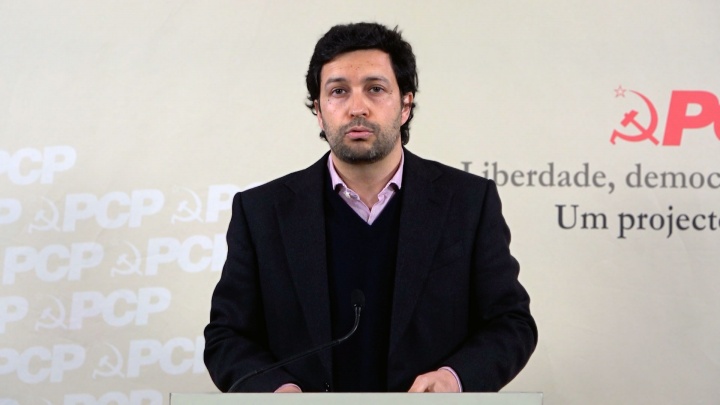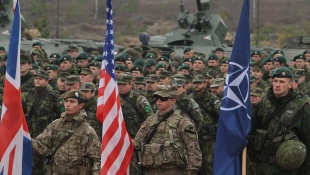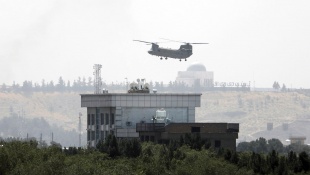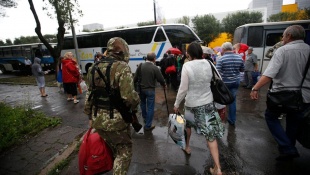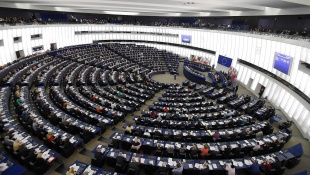The NATO summit and the meeting of the Council of Europe, whose decisions essentially coincided, raise well-founded concerns and are part of a logic of confrontation that, politically, militarily and economically, is marking the evolution of the situation in Europe and in the world.
The current situation is marked by the war in Ukraine. A war that should not have begun and which should urgently be ended. To this end, priority should be given towards developing initiatives and measures that enable a ceasefire, lead to a political solution to the conflict, the necessary answers to the common problems of security in Europe, de-escalation and disarmament, with respect for the principles of the UN Charter and international law, in particular the Final Act of the Helsinki Conference. It is necessary to defend dialogue and peace, looking at the causes of the conflict, and not to foster and instigate an escalation of unpredictable consequences.
Contrary to what was required, the conclusions of the Council of Europe, in line with the conclusions of the NATO summit – some of which have long been outlined – point precisely in the direction of confrontation that is at the root of the current serious situation. Instead of efforts to de-escalate and stop the war, the adopted measures objectively proceed in the opposite direction. Instead of opening dialogue towards a political solution, there is insistence on further warmongering, fostering a new, more serious advance in the installation of military equipment and troops in the European continent, which at this stage already involves the deployment of hundreds of thousands of troops (including more than 100 million US troops, in addition to troops from the several European members of NATO), and of various NATO military means – by land, air, and sea – in Easter Europe, from the Baltic Sea to the Black Sea, in an unprecedented presence in the region.
PCP reiterates that peace is not achieved by insisting on the path that led to war. Strengthening NATO's presence in Eastern Europe is part of the problem, it will never be part of the solution. Peace and security are not promoted with confrontation, threats, war propaganda, or sanctions.
The conclusions of the Council of Europe demonstrate how the European Union is blindly following the United States of America and its interests, sacrificing the interests of the countries and the peoples of Europe, who see their economic and social situation worsen significantly, with brutal rises in the cost of living, in the context of the imposition of sanctions, which in Portugal and across Europe is diversely exploited, as well-manifested in the action of economic players that foster speculation, heavily punish workers and populations, and attack labour and social rights. Unfortunately, this reality did not deserve a single mention by the Council of Europe.
The arms race, the policy of economic, commercial, financial, cultural and sports sanctions, the authoritarian drift and the imposition of a single thought do not serve the cause of peace, nor the interests of the peoples. As is already evident, they do serve the arms industry's profiteering and the military-industrial complex, whose market capitalization has hit record highs; they serve those who are taking advantage of the sanctions to increase profits; they serve the direct beneficiaries of redirecting the energy dependence of the various EU countries, in namely towards the US, specially regarding fossil fuels, and, in particular, natural gas – entailing solutions that are more expensive and have higher environmental impact, laying bare the hypocrisy behind the EU's self-boasting environmental concerns; and also serve to foster the growth of reactionary, anti-democratic, and fascistic conceptions.
The adoption of the so-called "strategic compass", which has long been in preparation, represents a new step towards deepening the militaristic pillar of the European Union. With assumed articulation and complementarity with NATO – confirmed as a US instrument –, this represents a more aggressive, interventionist, and destabilizing vision, in line with the geostrategic interests and ambitions of the major European powers, striving to possess a military capacity capable of acting anywhere in the world, according to their interests and associated with the development of their own military-industrial complex. A militaristic rift that demands increasing resources, which are lacking for the fight against the productive, energetic, food, technological, and demographic deficits, in the complete financing of public services, in the combat against poverty, injustices and social inequalities. This path that will not bring greater security to Europe, but greater risks.
As for the sharp rise in energy costs, implying a significant socio-economic deterioration – demanding further understanding of the so-called “temporary exception” granted to Spain and Portugal –, it is noteworthy that the European Council did not touch upon the status quo of the main aspects of the current energy markets: liberalization, privatization, segmentation, transferring costs of production to the final consumer; and a price fixation method in the wholesale markets that is responsible for brutal differences between production costs and consumer prices, ensuring huge profit margins for the private oligopolistic groups. The so-called 'toolbox' the European Council is once again insisting is, in practice, little more than temporarily subsidising these profits with public resources.
The adoption of market regulation measures, now timidly accepted, namely by introducing price caps, could and should have been implemented a long time ago, avoiding the pillaging that many families and small and medium-sized enterprises have been subjected to in recent months. But these measures do not exclude the even more obvious need to restore public control over the energy sector, an essential option for addressing the challenges of economic development.
The current situation further highlights the risks of the country's increasing dependence. The response to economic problems and the national productive deficit does not rely, contrary to the Council of Europe's indications, on deepening the single market and its underlying inequalities, nor maintaining the constraints arising from the single currency, the rules of economic governance and those associated with European funds.
What is required is the implementation of measures that promote national production, creating jobs with rights, mitigating productive deficits, replacing imports with national production, namely in the food sector, diversifying economic relations, reducing trade imbalances and the country's external dependence.
